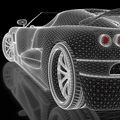- Rise of blockchain commercial solutions
Despite the scepticism surrounding cryptocurrency, blockchain is likely to make inroads into a wide range of commercial applications. I predict we will see a proliferation of blockchain technologies taking over the regulation of a wide range of processes that have historically required a level of human validation.
We can expect an impact in industries such as insurance where pay-outs can be approved and executed without human intervention. Digital signatures and paperless processes are most likely to impact on how the sales and conveyancing of properties are executed. Integrated with the regulatory environments, blockchain will start to manage and regulate trade agreements and sales.
- Digitising healthcare
Wearable devices for fitness and wellness are already monitoring our heart rates, assessing our hydration and fat to muscle ratios, and so on. There’s already a host of smart hardware and software augmenting everything from screening and diagnosis to treatment adherence and care services.
The opportunities for tech to continue to improve access and quality of healthcare are vast. Remote testing, screening, information-gathering and virtual care services will revolutionise the health care industry and create transformation in how we think and act when it comes to our health and wellness.
- Our spaces will get smarter and smarter
IoT, AI, ML (machine learning) and advanced data analytics are already converging to make homes and workspaces smarter and smarter. This will continue, and we will see more and smarter devices becoming involved in our daily lives. A multitude of devices formulated with open standards will set the scene for everything potentially talking to everything else. Lighting, entertainment, environment control, power usage, surveillance and threat detection will all start to be managed through smart systems.

Ryan Martyn is co-founder of Syntech
The ability of the systems to learn and respond appropriately to our daily routines will transform the way that we interact with our homes in the future. Our devices will learn our habits and anticipate our personal wants and needs.
- Evolution from reactive to proactive services
The security industry is currently modelled on reactivity and responsiveness. Armed response teams only react once an intruder is already in the premises, imagine if a patrol car was to drive by and confront potential intruders before they gained access. Big data analytics and IoT will transform security into a proactive industry focused on prevention through analytics algorithms that can identify potential threats.
Smart homes will start to proactively address issues before they become threats or disasters. A simple example is how a smart water leak detector could turn off your problematic geyser, notify you and the insurance company and arrange a repair callout which is all governed by a blockchain workflow. We are moving into an era where many disasters can be entirely avoided.
- Yes, driving cars is going to change for everyone!
Automated route planning and evermore autonomous vehicles are going to change the way in which we travel. Cars with level 4 and 5 autonomy will be deployed into safe zones in the more progressive cities and countries; it is where we are all heading.
Globally, driving fast and recklessly is going to be limited to the bona fide race car tracks. In our day to day lives, our focus is going to shift from control and speed towards efficiency and safety. In the long-term vehicles will operate with true ‘organised chaos’; with live awareness and synchronisation of every other vehicle on the road.
This will eliminate the need for stop streets and traffic lights. The shift will allow for free-flowing traffic. In the short term expect far more tech to be incorporated into all new vehicles including improved infotainment systems, GPS navigation and smart safety systems like assisted braking.
- Online ecosystems will continue to disrupt retail
Initially, e-commerce disrupted retail with the price but it will go on to entirely change the way we purchase. Today we benefit from more extensive product ranges, independent ratings and reviews as well as more competitive prices when shopping online.
Shopping will become even more intuitive with recommendations, subscriptions, replenishments and reservations being suggested or automated based on our personal preferences. As humans become more entrenched in digital ecosystems, it will become harder to connect with traditional broad-based retail. Google, Apple and Amazon are already making great inroads here.
- We will all get what we have always wanted – an amazing personal assistant
Amazon’s Alexa, Apple’s Siri and Google Assistant are the frontrunners, and they are developing capabilities that will make us feel safe to leave so much in their hands. Most consumers only use voice command for basic information or actions but they will start to play a more active role in planning, scheduling appointments and driving buying decisions with proactive reminders and notifications.
- Tech will drive increasing polarisation between people
Applied AI across our social media accounts and internet searches already deliver to us the news and views, the advertising and marketing, the products and services that reinforce our beliefs and perceptions. Thanks to the commercial forces driving this trend, our world has become notably polarised when it comes to our viewpoints, and this is most likely to become more intense. There are numerous high-profile examples where evidence that is not credible and validated by an authority easily becomes fact and influences people’s decisions and actions.
Today, tech makes it easy for us to become polarised and provides fertile ground for radicalism to flourish. While algorithms based on commercial rather than social values continue to rule what information appears on our feeds, we can expect the disconnection between people to intensify.
- Better access to global markets
As a market with significant development and expertise, South Africa is geographically isolated from other similar markets where we could sell our products and services. Businesses have been traditionally dependent on serving our geographical market, but the internet has allowed us to engage and service global markets with cloud-based services.
Mark Shuttleworth is regarded as a pioneer in this space but there are plenty of examples of successful South African businesses that have scaled globally. GetSmarter and Woocommerce are more recent examples of Cape Town businesses that achieved phenomenal global success.
- Less cash in favour of digital payments
Cash has always represented tangible value and is trusted by many, but it does have its own limitations that are becoming increasingly difficult to overcome. Counterfeit notes, costs and risks of transport and storage as well as geographic specific currencies are just a few of the limitations associated with cash.
I expect that the use of cash in the formal and informal sector will decline in favour of digital payment methods that incorporate technology like NFC to facilitate the transfer.













































